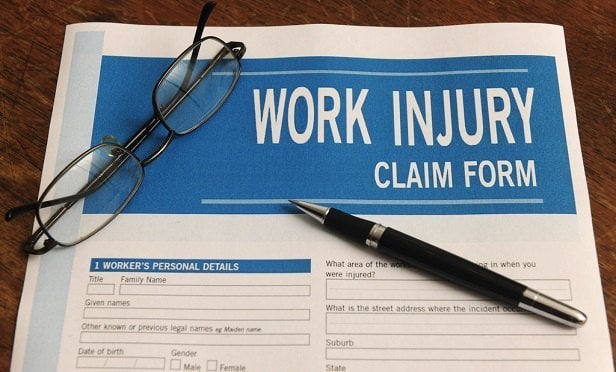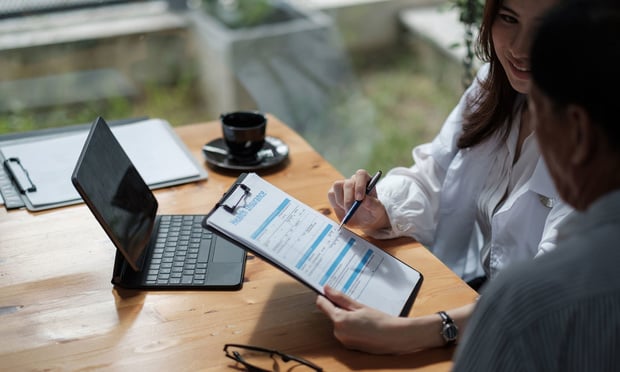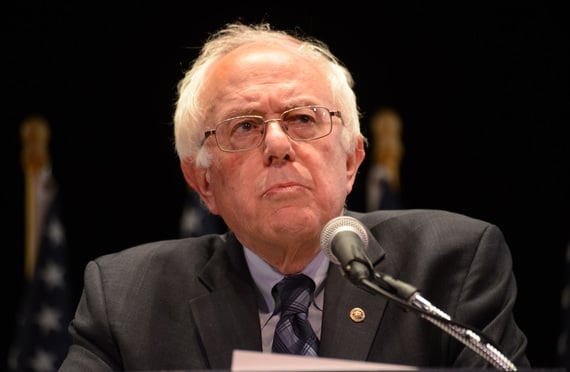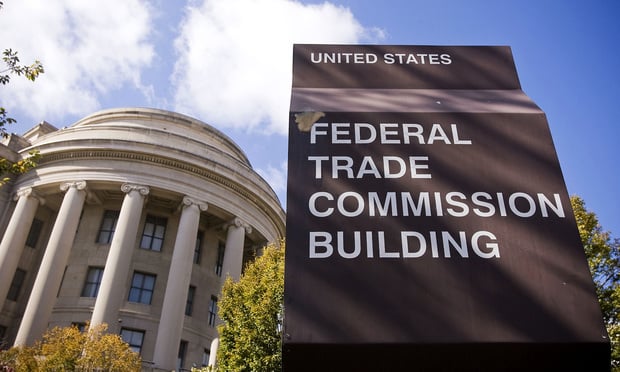 In at least 16states and Puerto Rico, officials have passed measures to make iteasier for workers infected with the coronavirus to qualify forbenefits for lost wages, hospital bills or death. (Photo:Shutterstock)
In at least 16states and Puerto Rico, officials have passed measures to make iteasier for workers infected with the coronavirus to qualify forbenefits for lost wages, hospital bills or death. (Photo:Shutterstock)
James "Mike" Anderson was a hospital employee in suburbanPhiladelphia with a low-profile though critical job: changing airfilters in COVID patients' rooms.
|By late March, new COVID cases in Bucks County, Pennsylvania,had ramped up to as many as 90 per day. At the hospital, Anderson handled air filters andother surfaces that might have been contaminated with the deadlyvirus, also known to hang in the air.
|Related: Illinois' new emergency workers' comp rule wouldhold employers responsible for COVID-19 diagnoses
|In early April, Anderson, 51, came down with what he thought wasa cold, according to his family's lawyer, David Stern. On April 13Anderson was rushed to the hospital, where he died of acuterespiratory distress syndrome from COVID-19, according to thecounty coroner. He left behind a wife and two children, ages 5 and9.
|Anderson was exposed to the virus at work, the lawyer contends,making his family eligible for workers' compensation death benefitspaid by his employer's insurer.
|"His family deserves to have that income replaced," Stern said."Their husband and father certainly can't be."
|But in a June 16 response to Stern's death benefits claim, St.Mary Medical Center denied all allegations.
|As the COVID toll climbs, sick workers and families of the deadface another daunting burden: fighting for benefits from workers'compensation systems that, in some states, are stacked againstthem.
|In interviews with lawyers and families across the nation, KHNfound that health care workers ― including nurses' aides, physicianassistants and maintenance workers ― have faced denials orlong-shot odds of getting benefits paid. In some cases, thosebenefits amount to an ambulance bill. In others, they would providelifetime salary replacement for a spouse.
|Legal experts say that in some states COVID-19 falls into along-standing category of diseases like a cold or the flu —conditions not covered by workers' compensation — with no plans tochange that. Other states force workers to prove they caught thevirus at work, rather than from a family member or in thecommunity.
|"We are asking people to risk their lives every single day — notjust doctors, nurses and first responders, but also nurses' aidesand grocery store clerks," said Laurie Pohutsky, a DemocraticMichigan lawmaker who proposed a bill to help essential workers getcoverage more easily. "These people are heroes, but we have toactually back those words up with actions."
|In at least 16 states and Puerto Rico, officials have passedmeasures to make it easier for workers infected with thecoronavirus to qualify for benefits for lost wages, hospital billsor death. Similar bills are pending in other states, but some faceopposition from business groups over costs.
|Many of the proposed actions would turn the tables on the statusquo, forcing employers to prove workers did not catch the virus atwork. Bills vary in the scope of workers they cover. Some protectall who left home to work during stay-at-home orders. Others arelimited to first responders and health care workers. Some wouldcover only workers who get sick during states of emergency, whileothers would cover a longer period.
|An early glimpse of data shows that health care workers andfirst responders, two groups hit hard by the virus, make up themajority of those seeking benefits. Data from the Centers forDisease Control and Prevention shows that more than 95,000 health care workers have beeninfected, a figure the agency acknowledges is an undercount. KHNand The Guardian U.S. have identified more than 700 who have diedand told the story of 139 of them. For these workers' families, thestakes of the pending laws are enormous.
|In Virginia, attorney Michele Lewane is representing a nurse anda physician assistant who contracted the coronavirus while workingat the same urgent care center. The physician assistant, whoadministered COVID tests, was hospitalized with COVID-19 andpneumonia for about a week. He missed five weeks of work.
|When the physician assistant asked the urgent care center forpaperwork to file a workers' compensation claim to cover hishospital bill, an administrator refused to hand it over, sayingcoronavirus treatment wouldn't be covered, Lewane said. He was laidoff days later and left with a $60,000 hospital bill.
|Lewane said the law in Virginia will likely consider COVID-19 an"ordinary disease of life," akin to a cold or the flu. She saidshe'd have to prove by "clear and convincing evidence" that hecaught the coronavirus at work.
|The bar is so high, she said, that she's waiting to file a claimin hopes that Virginia joins many other statespassing laws that make it easier for health workers to provetheir cases.
|Craig Davis, president-elect of the Virginia Trial LawyersAssociation, said he took on a test case and received a quickdenial of workers' compensation benefits for a COVID-positivephysician assistant.
|"We think there's an infinitesimal possibility of prevailingunder our laws as currently written," he said. His group is pushingfor a legislative change.
|In Montana, which has largely been spared by the pandemic,workers face even longer odds. A 64-year-old nurse at a smallhospital there was hospitalized for eight days with COVID-19 inApril, according to her Great Falls lawyer, Thomas Murphy. Sheremains at home on oxygen, unable to work.
|The woman filed a workers' compensation claim, which couldqualify her for up to $800 a week in lost wages plus lifetimecoverage of medical bills related to her condition. Instead ofagreeing to those benefits, Murphy said, the insurer offered tosettle for $17,000, which she declined because it would not coverher medical bills.
|Murphy said the employer, which he did not name to protect hisclient from retaliation, is arguing that she was the first personat the hospital to contract the virus, so she likely didn't get itat work. However, he noted that two other hospital employees andsix patients tested positive within the next two weeks and hisclient went few places other than work.
|In Montana law, the burden of proof lies on the employee to showan illness was work-related.
|"We're going to have to try to piece together all of thesources" that might have infected her — "and prove that it's moreprobable than not that she got it at work," Murphy said. "Womenlike this woman are going to have a hard road ahead of them."
|The Montana Legislature isn't set to meet until January, and anexecutive order appears unlikely.
|In New Jersey, attorney Rick Rubenstein is representing thewidow of a man who worked as a housekeeper at a nursing home, doinglaundry and occasional patient care. Not given protective gear byhis employer, the man caught COVID-19 and had a lengthy stay in theintensive care unit before he died.
|His wife has the virus now and was faced with a default — noanswer in 35 days — after seeking benefits in New Jersey's workers'compensation system. They would cover her husband's $188,000hospital bill and survivor's pay of $308 per week.
|"She's isolated, doesn't know what her own health future holdsand doesn't have an explanation of why this stuff is happening,"Rubenstein said. "It's terrible."
|A bill proposed in New Jersey would make it easier for essentialworkers who got COVID-19 during the state of emergency to provethat they got it on the job. The bill was passed by the stateSenate and is pending before the General Assembly.
|The New Jersey Business & Industry Association has opposedthe bill, saying it would push higher workers' compensationinsurance rates onto businesses that are "struggling tosurvive."
|"Our concerns are primarily that the cost of these claims canoverwhelm the system, which was not designed to handle claimsduring a worldwide pandemic," NJBIA Chief Government AffairsOfficer Chrissy Buteas said in a statement.
|While there are no national estimates of how many are filingclaims for workers' compensation ― or getting approvals ―Massachusetts provided KHN with a summary of its coronavirusreports from March, April and May.
|During those months, employers filed 3,482 "first reports ofinjury" regarding a worker with COVID-19 ― 2,915 were for healthcare workers. Insurers denied benefits to 216 health care workers,according to Massachusetts records.
|Florida posted similar data, showing a higher rate of denied claims for healthcare workers. While 1,740 health care workers sought benefitsrelated to COVID-19, about 30%, or 521 claims, were fully denied.Among the 1,200 who were paid benefits, the amount paid added up to$1.3 million.
|The cost of covering 9.6 million first responders and healthworkers nationally could range from $1 billion to $16 billion, according to theNational Council on Compensation Insurance, which providesinsurance rate recommendations for 38 states. The bill is paid byemployers who buy workers' compensation insurance, employers thatself-insure and taxpayers, who support government agencies.
|Those estimates do not include New York or California, whereGov. Gavin Newsom's executive order broadening coverage throughJuly 5 is projected to add about $1.2 billion to California's costs.
|In many states, business associations consider proposals toexpand workers' compensation too costly and too broad.
|A proposed California bill would extend Newsom's executive order and putthe burden on employers to prove that "critical workers," includingthose in retail, warehousing and delivery, who got the coronavirusdid not get it at work. The bill has critics.
|"California employers have been significantly impacted by thiscrisis and simply cannot be the safety net for this pandemic byproviding workers' compensation benefits for all employees, evenwhen they are not injured at work," according to a letter ofconcern signed by the California Chamber of Commerce, CaliforniaHospital Association and others.
|A federal backstop may become available. Sen. Tammy Duckworth(D-Ill.) and a bipartisan group of lawmakers introduced a bill that would create a federal fund foressential workers, including health care personnel, who get sick ordie from the coronavirus. The Pandemic Heroes Compensation Actwould be modeled after the September 11th Victim CompensationFund.
|In Pennsylvania, there is no presumption that COVID-19 isacquired on the job.
|Stern, the lawyer for Anderson's family, filed a "fatal claim"in May with the state workers' compensation board, which passed iton to the employer.
|A St. Mary Medical Center spokesperson confirmed in an emailthat Anderson worked there for 23 years and was a maintenancemechanic. She would not discuss his case. "We are extremelysaddened by his death," she wrote. "We are not able to provideadditional information out of respect for his and his family'sprivacy."
|Mark Banchi volunteers with hospital chaplains and knew Andersonfor over 30 years. He said co-workers are reeling from the death ofa man who "was enthusiastic, gregarious, friendly."
|"His loss to the hospital is real," Banchi said. "Some peoplelift spirits, some people make you glad you came that day, and Mikewas one of those people."
|In addition to working at St. Mary for $22 an hour, Anderson hada cleaning job at a car dealership. Stern said Anderson wasunlikely to be exposed to the virus there. If Stern prevails, thefamily would receive two-thirds of Anderson's combined pay, cappedat $1,081 a week.
|Kaiser HealthNews (KHN) is a national health policy news service. It is aneditorially independent program of the Henry J. Kaiser Family Foundation whichis not affiliated with Kaiser Permanente.
|Read more:
Complete your profile to continue reading and get FREE access to BenefitsPRO, part of your ALM digital membership.
Your access to unlimited BenefitsPRO content isn’t changing.
Once you are an ALM digital member, you’ll receive:
- Critical BenefitsPRO information including cutting edge post-reform success strategies, access to educational webcasts and videos, resources from industry leaders, and informative Newsletters.
- Exclusive discounts on ALM, BenefitsPRO magazine and BenefitsPRO.com events
- Access to other award-winning ALM websites including ThinkAdvisor.com and Law.com
Already have an account? Sign In
© 2024 ALM Global, LLC, All Rights Reserved. Request academic re-use from www.copyright.com. All other uses, submit a request to [email protected]. For more information visit Asset & Logo Licensing.








